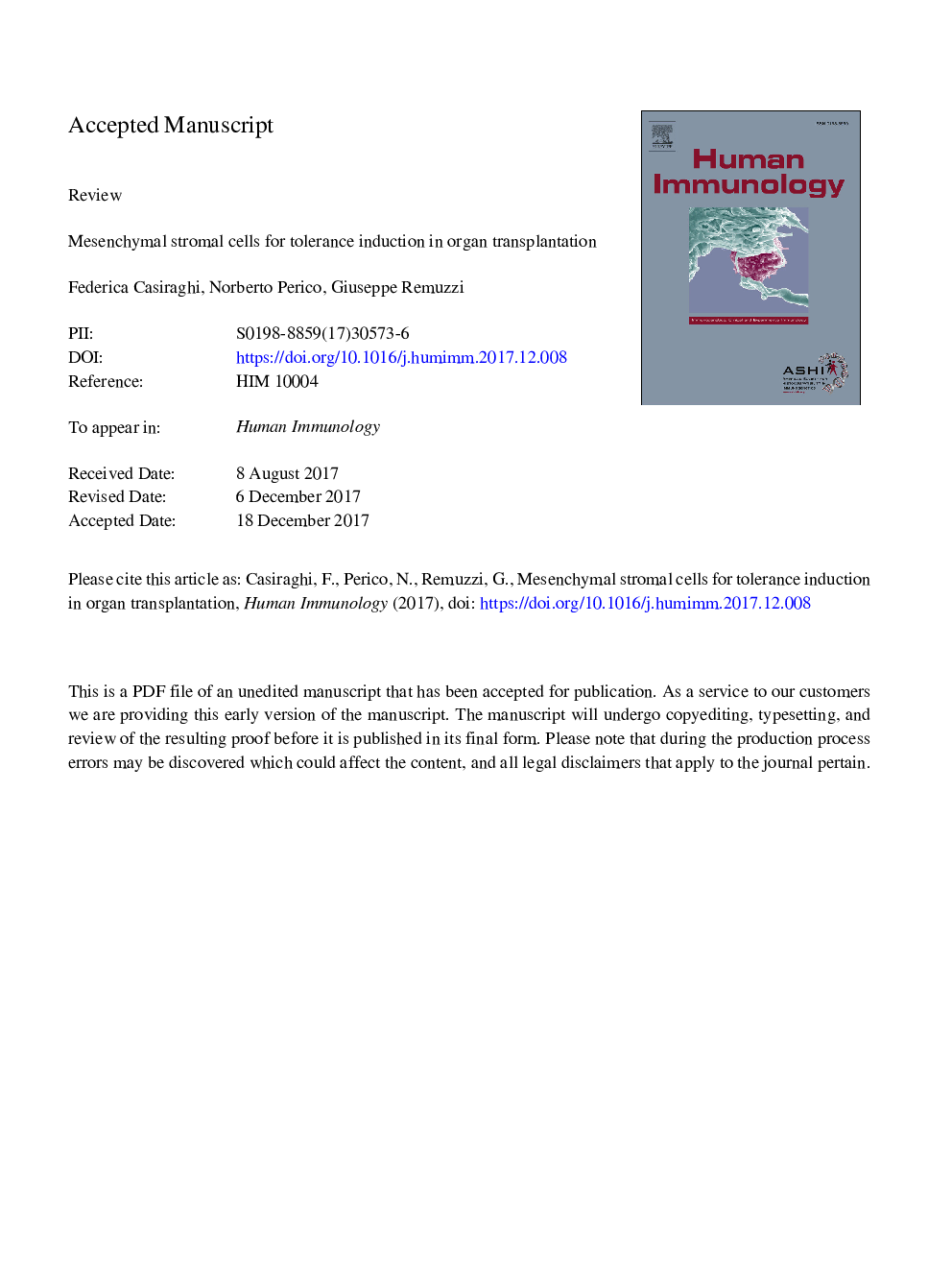| Article ID | Journal | Published Year | Pages | File Type |
|---|---|---|---|---|
| 8737618 | Human Immunology | 2018 | 35 Pages |
Abstract
The primary challenge in organ transplantation continues to be the need to suppress the host immune system long-term to ensure prolonged allograft survival. Long-term non-specific immunosuppression can, however, result in life-threatening complications. Thus, efforts have been pursued to explore novel strategies that would allow minimization of maintenance immunosuppression, eventually leading to transplant tolerance. In this scenario, bone marrow-derived mesenchymal stromal cells (MSC), given their unique immunomodulatory properties to skew the balance between regulatory and memory T cells, have emerged as potential candidates for cell-based therapy to promote immune tolerance. Here, we review our initial clinical experience with bone marrow-derived MSC in living-donor kidney transplant recipients and provide an overview of the available results of other clinical programs with MSC in kidney and liver transplantation, highlighting hurdles and success of this innovative cell-based therapy.
Keywords
Related Topics
Life Sciences
Immunology and Microbiology
Immunology
Authors
Federica Casiraghi, Norberto Perico, Giuseppe Remuzzi,
